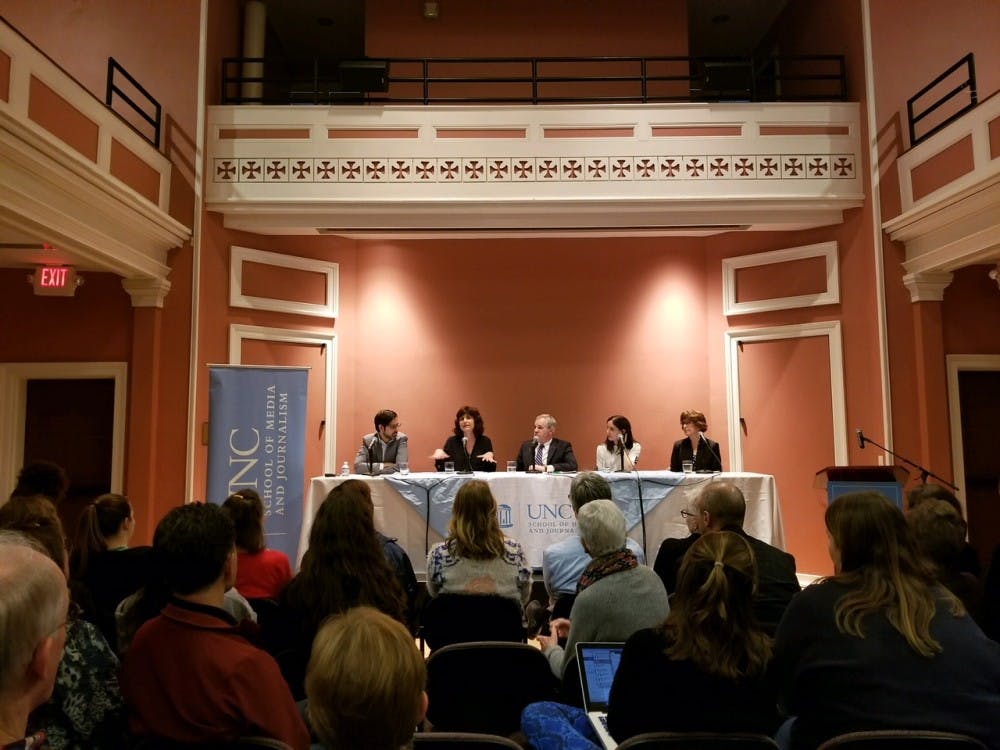A panel of journalists came together in Gerrard Hall on Tuesday night to reflect on the unmasking of sexual misconduct in Hollywood and the media, which has amplified in recent years.
“Holding Power Accountable: Reporting on Sexual Misconduct,” an event held by the UNC School of Media and Journalism, was comprised of three invited journalists and UNC associate professor Barbara Friedman.
The panel discussion focused on the role of journalism in today's world where workplace culture is being reevaluated to give more power to victims. As sexual misconduct coverage changes, reporters are now able to find accusers that will go on the record, who previously might have been silenced due to fear or concerns over job security.
The three invited guests have all been intimately involved with the recent emergence of celebrity sexual misconduct into the national spotlight. Emily Steel, New York Times journalist and 2006 UNC and Daily Tar Heel graduate, broke the Bill O'Reilly sexual harassment story. Kim Masters, editor-at-large of the Hollywood Reporter, worked on the Harvey Weinstein story. NPR correspondent David Folkenflik has even investigated allegations into men within NPR.
Folkenflik said the narrative currently at play in the media, encapsulated by the #MeToo movement, started with the Bill Cosby allegations, which empowered other victims by proving that coming forward and telling their stories could lead to action and awareness.
The wave continued with Fox News CEO Roger Ailes, who resigned in July 2016 following sexual harassment allegations. Folkenflik said the chief executive was a paranoid man long before the recent allegations against him were made public. He had email filters installed in his company’s servers to search for mentions of his name and installed a surveillance system in the Fox News offices, waiting to catch someone intent on disparaging him.
Steel said these institutional measures were evidence that Fox was aware of Ailes’ conduct long before the he stepped down, despite the company’s denial of knowing. The journalists at the discussion saw these types of institutional guard posts as one of the major challenges to exposing men like Ailes and Weinstein, whose crimes were not reported until years after they had already affected many.
Masters has worked on the sexual misconduct beat for years. At an off-the-record lunch more than 10 years ago, Masters remembers Weinstein asking her what she’d heard about him.
“I heard you rape women,” Masters said.



